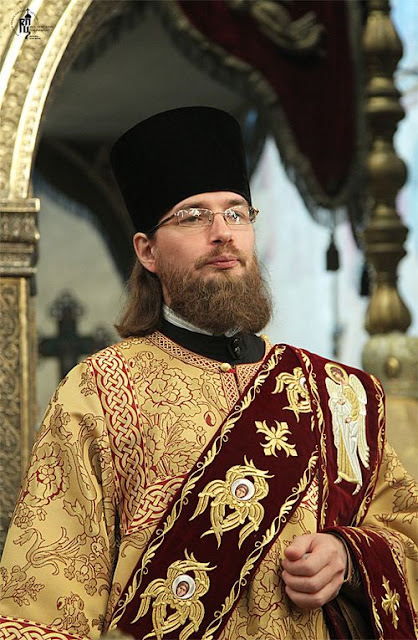Diocese of the South tries its hand at diaconal instruction
 |
The second impediment plaguing many diaconate programs is poor administration. If you talk to people involved in these programs, paperwork is often a nightmare and getting prompt responses from administrators is nearly impossible.
Thirdly, most diaconal programs offer courses that cannot be counted for seminary credit. Sometimes this is because the classes are thought to not be as demanding as those offered in seminaries and other times because no effort has been made to certify diaconal courses within the seminary program. Regardless, it seems to me to be built-in needless redundancy that benefits neither the candidates nor the seminaries of our country.
(OCA) - Saint Tikhon’s Orthodox Theological Seminary, in an agreement with the Diocese of the South of the Orthodox Church in America, recently announced that applications are now being accepted for entrance into the Diocesan Certificate in Diaconal Formation Program.
The program, which begins September 15, 2012, will be conducted at Christ the Saviour Cathedral, Miami Lakes, FL, and is the first such program in the Diocese of the South.
The program, initiated several years ago at Saint Stephen Cathedral, Philadelphia, PA, was eventually expanded with the opening of a second location in Endicott, NY.
“The Diaconal Formation Program is open to Orthodox Christian men who hope to serve the Church in the Holy Diaconate, or who have intentions of future enrollment in full-time seminary degree programs,” according to Priest Joseph Lucas, cathedral associate and director of the Miami program. “The program consists of two years of classes that are offered on Saturdays during the academic year. This allows those enrolled in the program to take seminary-level classes while continuing with their employment responsibilities. Besides class participation, an important part of the program is participation in the divine services and liturgical practicum.
“The courses of the Certificate in Diaconal Formation Program consist of 24 academic credits that subsequently may be transferred towards the completion of a Master of Divinity degree at Saint Tikhon’s Seminary,” Father Joseph added. “A Certificate in Diaconal Formation is awarded at the seminary’s commencement ceremony upon successful completion of the program.”
For additional information, please visit their web site here.

RE Thirdly, most diaconal programs offer courses that cannot be counted for seminary credit.
ReplyDeleteAnother reason these courses may not count for full seminary credit is because the student taking the course does not have a college degree. If so, this is not unique to the Orthodox.
The Southern Baptists have about six seminaries. All of them, I believe, are accredited by secular agencies: for example, the Western Association of Schools and Colleges. These accrediting agencies have rules about the prerequisites a seminary student must meet in order to receive full credit for a course. From a secular standpoint this usually means graduation from an accredited four-year college or university.
If the seminary allows people without college degrees to receive a full-credit seminary degree, they run the risk of losing their accreditation.
If a person with no college degree wants to take a seminary course, he is welcome to do it if there is room in the class. He sits in the same course as everyone else, and is expected to do the same work. However, at the end he receives a certificate of completion, not seminary credit.
The Miami Lakes Cathedral is my home parish. They've been working hard on this for a while and I think it will be a top notch program.
ReplyDelete